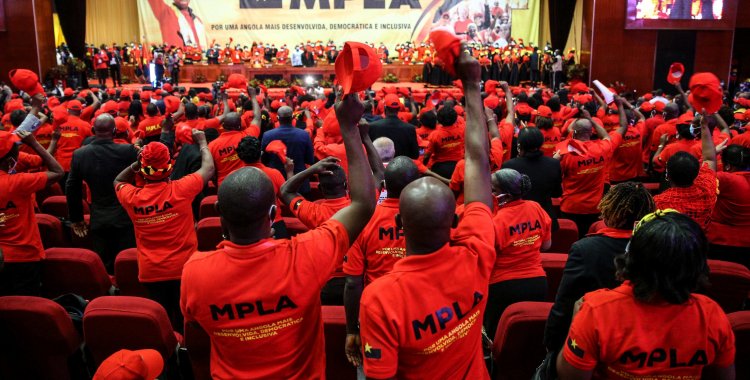"Because dialogue between political forces takes place in parliament, where political forces negotiate the various bills, and there has been a lot of dialogue and just to say that in this mandate, despite the qualified majority that the MPLA has, more than 90 per percent of the laws are passed by consensus," said Mário Pinto de Andrade, secretary of the MPLA political bureau for State Reform, Public Administration and Municipalities.
For the politician of the Popular Movement for the Liberation of Angola (MPLA, in power since 1975), the vaunted void of dialogue between political forces "does not exist" and the parliament, which brings together five political forces, "confirms this".
Pinto de Andrade was speaking within the scope of a magna conference alluding to the 12th anniversary of the Constitution of the Republic of Angola (CRA) of 2010, in Luanda, where he represented the vice-president of his party.
According to the "comrades" politician, all political parties, "particularly the MPLA, have carried out this dialogue through lectures, conferences, rallies and meetings with various sensitivities".
"Now, people cannot say that dialogue, sometimes as it is presented, only works if there is dialogue between the president of the MPLA and the president of UNITA, I think that's not it because Angolan society is much more than that", told reporters.
Last week, the Catholic bishops considered that Angola is experiencing a "dangerous void of dialogue" between "governors and governed" and between party leaders, which "raises radicalism and intolerance", in a context of "frightening" poverty.
At the opening of the first ordained plenary assembly of the Episcopal Conference of Angola and São Tomé, the president of the organization, José Manuel Imbamba, said that there is, in Angola, an "evident degradation of habits and customs of social behavior, attitudes and civility" and there is "a dangerous void between the governors and the governed, between the party leaders and between the various civic actors".
"Raising even more the levels of anxiety, radicalism, intolerance, indiscipline, physical, verbal, moral and psychological violence", said the prelate at the opening of the assembly that took place until 7 February, in Benguela province.
The deputy also exemplified the conference on the 12 years of the CRA, which was attended by representatives of various political forces in the country, to justify the existence of dialogue between party leaders.
"And this shows that society is in dialogue, now that it is necessary, within the framework of the electoral process, to have a message of tolerance, of respect for the other, of not setting fire to public goods, there we are in agreement and this is a speech that all parties must have it", he stressed.
The party official, who alluded to the incidents on 10 January, following the taxi drivers' strike, which resulted in the vandalism of a building belonging to a committee of his party and a public bus, also defended a "dialogue for the preservation of public".
"Because it is not understood that the Government puts buses for the citizens and then there are strange forces, which lead young people to be mobilized, to burn new buses, which cost the pockets of all taxpayers, so, too, we need to have this dialogue for the good of our nation", concluded Mário Pinto de Andrade.
Angola holds the next general elections in the second half of August, as established by the revised CRA in 2021.







